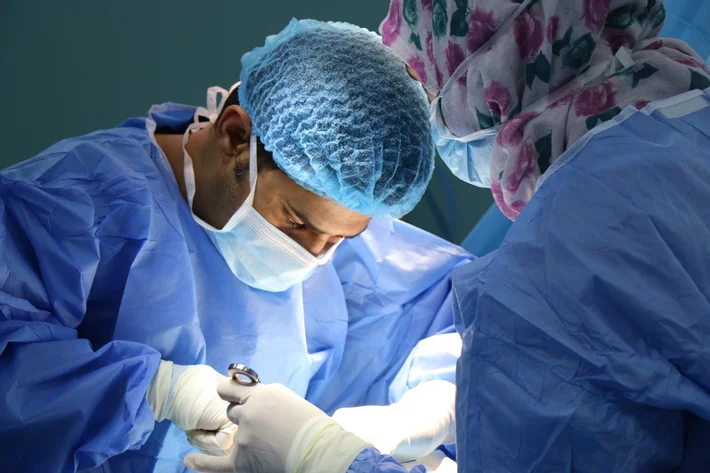![Separator]()
What are the potential complications of a reverse total shoulder arthroplasty?
Generally speaking, complications are more likely to occur with a reverse total shoulder arthroplasty than with a total shoulder replacement. This is largely because the procedure is often used to correct very complex conditions, making the surgery difficult and somewhat high-risk.
The most common complications include lasting instability, infection, notching, loosening, nerve injury, spine fractures, intra-operative fractures, and component disengagements. That said, as technology and research continue to advance, such complications are becoming less common.
In addition, all patients can expect bleeding, stiffness, and soreness during and after their procedure. Doctors will typically prescribe medication to help with the recovery process, and a physical therapist can help improve mobility and reduce pain following surgery.
The most common complications of reverse total shoulder arthroplasty include:
- Infection
- Instability
- Loosening
- Pain
Source:
NCBI



















